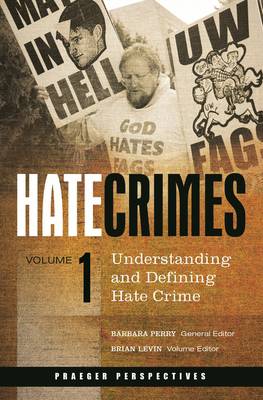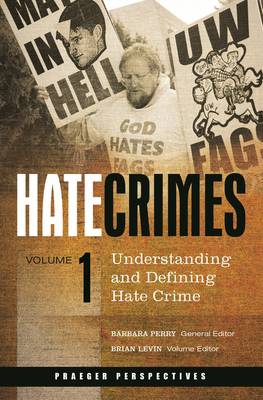
- Retrait gratuit dans votre magasin Club
- 7.000.000 titres dans notre catalogue
- Payer en toute sécurité
- Toujours un magasin près de chez vous
- Retrait gratuit dans votre magasin Club
- 7.000.0000 titres dans notre catalogue
- Payer en toute sécurité
- Toujours un magasin près de chez vous
Description
Hate crimes continue to be a pervasive problem in the United States. The murder of Matthew Shepard, the lynching of James Byrd, the murderous rampage of Benjamin Smith, and anti-Muslim violence remind us that incidence of deadly bigotry is not only a recurring chapter in U.S. history, but also a part of our present-day world.
Contrary to common belief, hate mongers who commit crimes are rarely members of the Ku Klux Klan or a skinhead group. In fact, fewer than 5 percent of identifiable offenders are members of organized hate groups. Yet rather than being an individual crime, hate crime represents an assault against all members of stigmatized and marginalized communities. To fully understand the phenomenon of hate crime and reduce its incidence, it is necessary to clearly define the term itself, to examine the victims and the offenders, and to evaluate the consequences and harms of hate crimes.
This comprehensive five-volume set carefully addresses the disturbing variety and incidence of hate crimes, exposing their impacts on the broader realms of crime, punishment, individual communities, and society. The contributing authors and editors pay critical attention to cutting-edge topics such as online hate crimes, hate-based music, anti-Latino hostilities, Islamaphobia, hate crimes in the War on Terror, school-based anti-hate initiatives, and more. The final volume of Hate Crimes provides valuable food for thought on possible legislative, educational, social policy, or community organizational responses to the varied forms of hate crime.
Spécifications
Parties prenantes
- Auteur(s) :
- Editeur:
Contenu
- Nombre de pages :
- 1200
- Langue:
- Anglais
- Collection :
Caractéristiques
- EAN:
- 9780275995690
- Date de parution :
- 05-03-09
- Format:
- Livre relié
- Format numérique:
- Met stofomslag
- Dimensions :
- 175 mm x 251 mm
- Poids :
- 2834 g

Les avis
Nous publions uniquement les avis qui respectent les conditions requises. Consultez nos conditions pour les avis.






